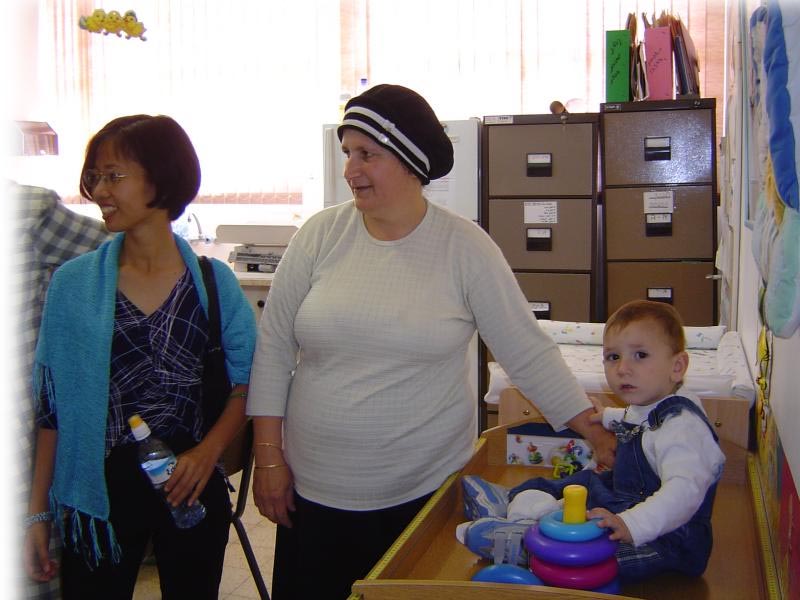|

We had an interesting visit to a Well Baby Clinic on March 3, 2004. Unlike in the Philippines, where there is only one
clinic for both the sick and healthy children and adult people in a community, in Israel they had a clinic for sick people
called Kupat Holim and a well baby clinic they called Tipat Halav. Tipat means (drop) and Halav means milk. Mothers
were given a card by the hospital when they gave birth. Affluent ones go to private clinics or their own pediatrician while
the low income families go to Tipat Halav like the one we had visited.
Because of the Tipat Halav, Israelis are able to identify the children with problems even when they
are still babies thus they are able to provide a timely intervention for them at an early age.
Ms. Yehudit Nahmias, the head nurse nurse in the Tipat Halav advices the mothers what to feed their baby, as well as
how to feed them, tell them to always talk to the baby even though it can't talk back yet, what to expect from their babies
in every stage of its development everytime they had a visit, as well as show them how to play with the baby, what toys to
use and what things to avoid, in some instances she also teaches mothers especially those who don't have enough money how
to make improvised toys since toys are very expensive in Israel.
She also gives the babies a developmental test like the one she did that morning.
|
